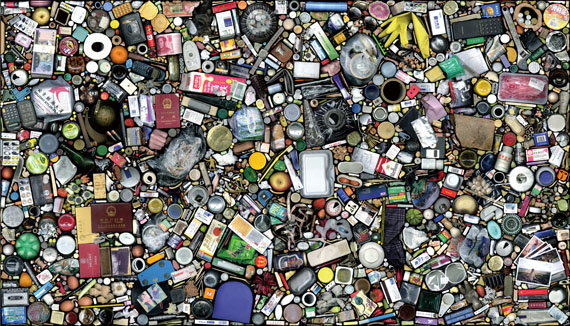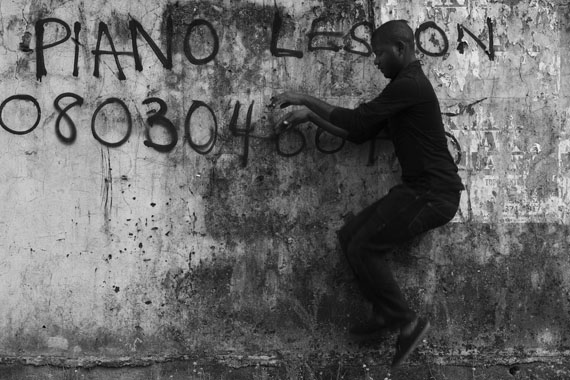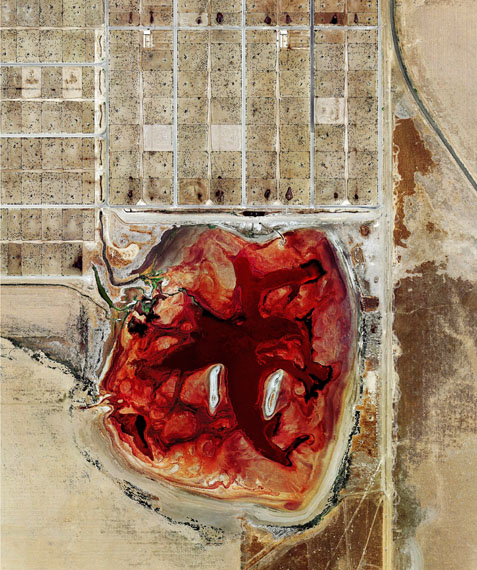
The Love Doll / Day 22 (20 Pounds of Jewelry)
2010, Cornwall, Connecticut, USA
177.8 x 199.38 cm, Fuji Matte Print
Series: The Love Doll
Laurie Simmons © Prix Pictet Ltd 2013/14, Courtesy of Wilkinson Gallery, London
Prix Pictet 2014 - Consumption
Winner: Michael Schmidt
Adam Bartos » Motoyuki Daifu » Rineke Dijkstra » HONG Hao » Mishka Henner » Juan Fernando Herrán » Boris Mikhailov » Abraham Onoriode Oghobase » Michael Schmidt » Allan Sekula » Laurie Simmons »
Exhibition: 22 May – 14 Jun 2014
Wed 21 May
The Victoria and Albert Museum
Cromwell Road, South Kensington
SW7 2RL London
Daily 10-17:45

V&A Victoria and Albert Museum
Cromwell Road, South Kensington
SW7 2RL London
+44 (0)20-79422000
Daily 10-17:45; Fri 10-22

My Things No. 1
2001, Beijing
120 x 210 cm, C-Print
Series: My Things
Hong Hao ©Prix Pictet Ltd 2013/14
The announcement for the shortlist for Prix Pictet Consumption has been made. At a ceremony at Musée d’Art Moderne in Paris, 11 artists have been selected. They are:
Adam Bartos (United States)
Motoyuki Daifu (Japan)
Rineke Dijkstra (Netherlands)
Hong Hao (China)
Mishka Henner (Belgium)
Juan Fernando Herrán (Colombia)
Boris Mikhailov (Ukraine)
Abraham Oghobase (Nigeria)
Michael Schmidt (German)
Allan Sekula (United States)
Laurie Simmons (United States).

Transits
2008, Medellín, Colombia
108 x 163 cm, Inkjet Print
Series: Escalas
Juan Fernando Herrán ©Prix Pictet Ltd 2013/14
The Shortlist represents the artists whose work best responds to the theme of Consumption in the eyes of the jury. The 11 artists will now prepare their work for the finalists’ exhibition, which is to be held at the Victoria and Albert Museum, London, on 21 May 2014 – where the winner of the fifth award will be announced by Kofi Annan.
Michael Schmidt was announced as the winner of the fifth Prix Pictet photography prize, selected from a shortlist of eleven. The winner was chosen for his monumental work Lebensmittel (food stuff) made between 2006 and 2010. The prize, with a value of 100,000 Swiss Francs (USD$112,500, GBP£66,800, EUR€82,000), is sponsored by Swiss wealth and asset managers, the Pictet Group.
Kofi Annan, Honorary President of Prix Pictet, said, ‘the shortlisted artists have made powerful images that ought to persuade governments, businesses – and each of us as individual consumers – of the need for a fundamental rethink of the principles on which present-day affluence is founded. The issue of unsustainable consumption, and in particular food and nutrition security, is not simply at the forefront of the global political stage, it is now firmly on the personal agenda of each and every one of us.’

Almerisa, Leidschendam, June 25, 2003
2003, Holland
94 x 75 cm, C-Print
Series: Almerisa
Rineke Dijkstra ©Prix Pictet Ltd 2013/14, Courtesy of Marian Goodman Gallery

Project Family #02
2009, Kanagawa, Japan
50.8 x 61 cm, C-Print
Series: Project Family
Motoyuki Daifu ©Prix Pictet Ltd 2013/14

Ernie & Mattress
2008, New York State
70 x 47 cm, Archival Pigment Print
Series: Yard Sale
Adam Bartos ©Prix Pictet Ltd 2013/14

Untitled
2000-2010, Kharkov ,Ukraine
25.3 x 41 cm, C-Print
Series: Tea, Coffee, Cappuccino
Boris Mikhailov ©Prix Pictet Ltd 2013/14

Shop occupied by women clerks for eighteen months in dispute over pay. Rúa Príncipe. (from Fish Story, Chapter 5), 1988-1995 edition of 5.
May 1992, Vigo, Galicia, Spain.
62.9 x 79.4 cm, Cibachrome (dye destruction) Color Print
Series: Fish Story
Allan Sekula © Prix Pictet Ltd 2013/14, Courtesy of Christopher Grimes Gallery

Lebensmittel
2006-2010, everywhere
56.1 x 81.6 cm, Baryt Print
Series: Lebensmittel
© Michael Schmidt

Untitled
2012, Lagos
101 x 152 cm, C-Print
Series: Untitled 2012
Abraham Oghobase ©Prix Pictet Ltd 2013/14

Coronado Feeders, Dalhart, Texas.
2013, Dalhart, Texas.
102 x 122 cm, Archival Pigment Print
Series: Beef & Oil
Mishka Henner ©Prix Pictet Ltd 2013/14